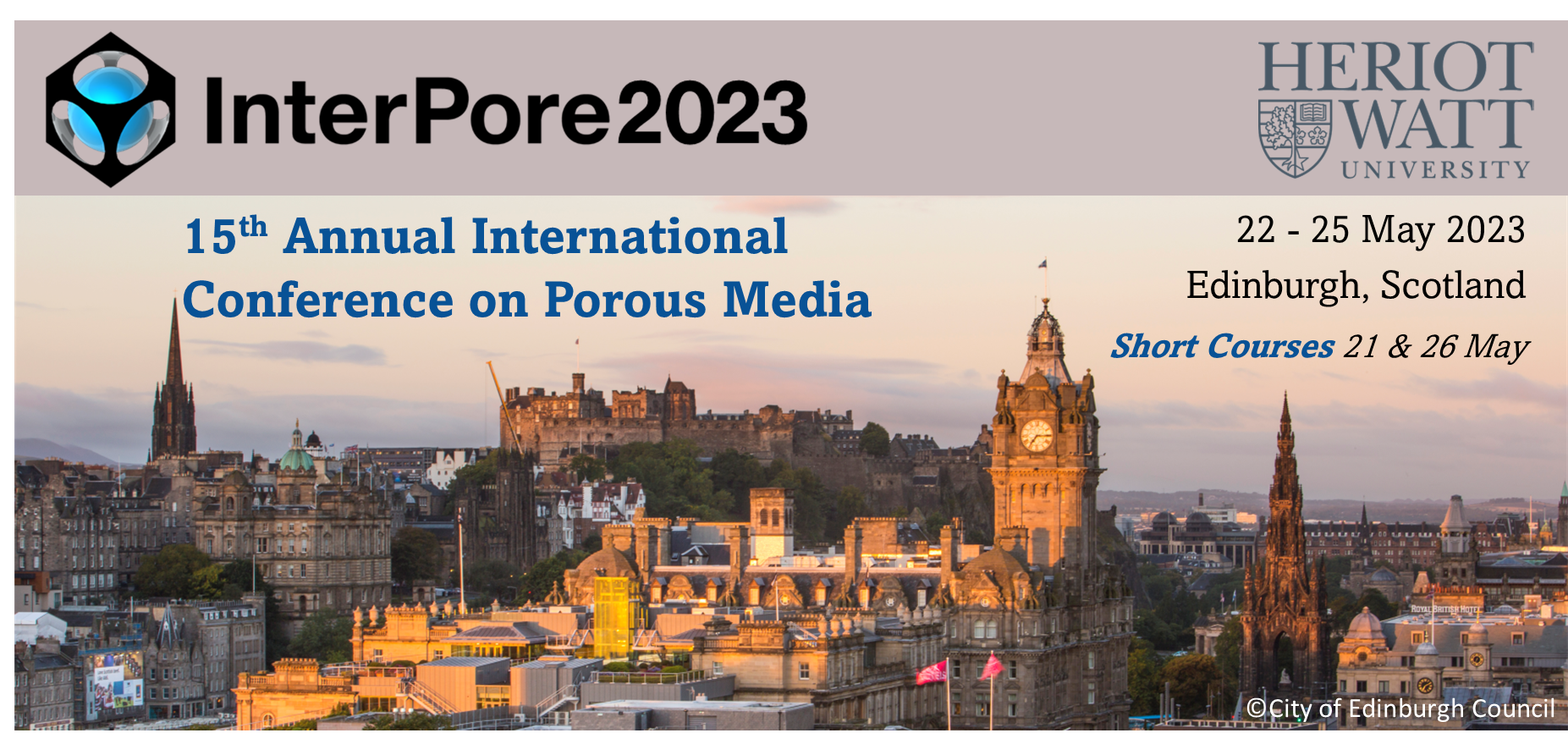Speaker
Description
Simulating the transport of gasses or liquids through porous media is challenging when the complex geometry of real systems is to be considered, especially when transport is accompanied by sorption and/or chemical reactions. This complexity challenges traditional numerical solvers in their ability to capture the intricate details of the system in an accurate yet feasible manner.
This contribution focuses on creating a mesh-free modeling framework for studying the reactive transport of volatile organic compounds through the complex micro-structure of papers. Previous studies [1] show that due to the chemical and physical interactions the organic volatiles exhibit sorptive behavior during their migration through the cellulose-based porous medium. This behavior is influenced by a combination of material properties, including the polarity of the organic compound, its diffusivity in the porous and solid phases of the paper, and the paper's micro-structural features such as porosity and tortuosity.
The underlying physics of the process is described by a system of non-linear partial differential equations (PDEs). The PDEs account for the diffusion of organic volatiles through the paper material as well as the adsorption and desorption of the compounds on the paper's surface. Due to the non-linearity of the PDEs and absence of analytical solutions in most of the cases, the inverse problem of determining the material properties based on experimental data is difficult to solve using regression models. In our previous work [2], we demonstrated on an example of dimethyl-sulfoxide (DMSO) migration through paper, how physics-informed neural networks (PINNs) can be successfully applied to solve inverse and forward problems in the case of one-dimensional transitive transport through paper.
Based on experimental migration data for DMSO and n-C14H30, current work extends this approach to two- and three-dimensional systems by incorporating micro-structural information obtained via micro-CT measurements of paper into the framework of PINNs domain. In this fashion the geometrical features of paper material are implicitly included in the formulation of the governing PDEs. We further decompose the domain of the solution functions into two parts: one representing the porous phase of the paper micro-structure, and the other representing the solid phase. We use separate PINNs to search for the solutions in each phase, merging them together at the interface by applying boundary constraints that govern the sorption process. On the one hand, this approach allows for a more accurate representation of the physical system based on the real geometrical data. On the other hand, using multiple PINNs is beneficial for the systems with complex topology where the solution functions show discontinuities on sharp interfaces and therefore require more flexible approximation functions.
References
[1] Hoffellner, Lisa and Henoegl, Elias M. and Petschacher, Patrick and Schennach, Robert and Leitner, Erich, (2021), The Interaction of Cellulose Thin Films With Small Organic Molecules—Comparability of Two Inherently Different Methods., Frontiers in Chemistry, vol. 9. https://doi.org/10.3389/fchem.2021.769022
[2] Serebrennikova, A., Teubler, R., Hoffellner, L. et al., (2022), Transport of Organic Volatiles through Paper: Physics-Informed Neural Networks for Solving Inverse and Forward Problems., Transp Porous Med, 145, 589–612. https://doi.org/10.1007/s11242-022-01864-7
| Participation | In-Person |
|---|---|
| Country | Austria |
| MDPI Energies Student Poster Award | No, do not submit my presenation for the student posters award. |
| Acceptance of the Terms & Conditions | Click here to agree |







